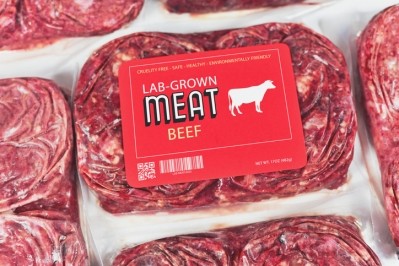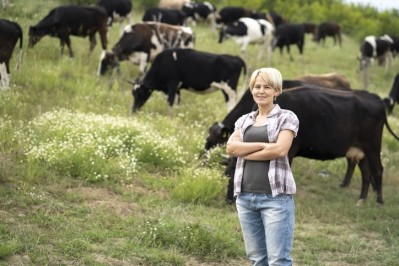What are the key actions needed for Canada to have a thriving and sustainable agri-food system?

The Canadian Agri-Food Policy Institute (CAPI) has named four renowned agri-food specialists as Distinguished Fellows. Dr Susan Wood-Bohm, Dr Ellen Goddard, Ted Bilyea and Nicolas Mesly will work together over the next year on critical issues, namely environmental sustainability, animal health, trade, and water.
This is a new initiative for CAPI. “Policy development is a team sport. It is done better when we do it together. This is one in a series of ongoing changes to really broaden our network and engage more people in our policy development process,” Tyler McCann, CAPI executive director, told us.
The idea is the experts’ findings will be translated into actions that will encourage deeper, bolder policy thinking, he said.
“Some of the initiatives will start to take shape over the next two months. We want our Fellows to be engaged with the agro-food community in Canada. We want them to be working with stakeholders, and with associations.”
Water scarcity
The Fellows will all lead individual projects, he said, but what CAPI recognizes more and more is this great interconnection that exists between the key challenges that the agri-food system is facing. “So our project on trade, for example, where we want to take a more strategic approach, will rely very heavily on the work being done in and around water.”
The availability of water is having a major impact on the ability of certain countries to produce food and climate change is only going to exacerbate food security issues linked to that natural resource.
A 2017 OECD assessment of future water risk hotspots projected that, without further action, Northeast China, Northwest India, and the Southwest United States will be among the most severely affected regions, with domestic and global repercussions.
“We need to have a better understanding of how water is being moved around [in terms of trade in food products], how we are using the water that we have available and how that resource is being managed.
"In the Canadian context, [a country with significant water resources], we need to examine whether we are using water in a way that is helping us address global food security needs and in a way that advances our interests as a major food exporter,” said McCann.
One Health
Animal agriculture is a major export sector in Canada. “We export significant amounts of pork and beef and those commodities will become a major focus of our trade work. They are also very water intensive, so they will come into play in that research project as well.
“But one of the more interesting angles is the One Health concept, this intersection of animal health, plant health, human health and the environment they all operate in.”
The strategic objectives, outcomes and opportunities to guide collaborative action on antimicrobial resistance (AMR) in Canada have been grounded in a One Health approach, he said, and have been developed in collaboration with federal, provincial and territorial governments and external stakeholders in the human and animal health and nutrition sectors.
“People certainly have a very high level of understanding of what a One Health context looks like. But what we want to do with our research project, that Dr Goddard is leading, is really take that down to the ground level, so we can think differently about it, about what impacts it will have on the policy environment that the food system operates in. I think that will have some direct impacts on livestock production and animal feed.”
The four research projects
Dr Susan Wood-Bohm’s project relates to on-farm action and environmental sustainability. The research will explore how to use public and private tools to spur substantial, durable on-farm action to optimize long-term positive environmental impacts while maintaining strong international competitiveness. Her project will include a review of how agriculture is and can contribute to meeting international obligations.
Dr Ellen Goddard will be looking at the intersection of animal, plant, human and environmental health. The project aims to develop a One Health framework that will take a transdisciplinary perspective and integrated view to public and private analysis and decision making.
Ted Bilyea’s project will examine a strategic approach to trade, exploring Canada’s agri-food trade policy in a shifting geopolitical world.
Nicolas Mesly will lead the research initiative on water. His project will assess how Canada’s agri-food system, including the public and private sectors and civil society can turn the challenges of water, such as scarcity, trade of water, and water’s role in food processing, into an opportunity.
A systems approach
The work the Fellows will do is building on a CAPI initiative that ran in May this year, with the organization convening leaders from across the country in government, industry, academia and NGOs for its Big Solutions Forum (BSF).
The experts focused on how “to create prosperity from chaos” in light of the pandemic, climate change, trade disruptions, food security concerns and the future sustainability and prosperity of the Canadian agriculture and agri-food system.
Sustainability from an environmental perspective is about carbon, it is about water, it is about biodiversity and it is about how all of those pieces fit together, said McCann. But environmental sustainability can’t be considered in isolation, it needs to be evaluated in relation to food security as well, he stressed.
“Canada is well positioned for the future. We do have an abundance of natural resources. The country will not feel the brunt of the impact of climate change like some other places in the world. Canada has the ability to be a major source of food security around the world. We need to find a way to do that - we are thinking about such challenges in terms of sustainable intensification, producing more with less.”
The BSF concluded that the Canadian agri-food system has great potential, but the sector needs aspirational leadership, strategic thinking, a systems approach, and greater public-private partnerships if it is to advance sustainable intensification, adopt a One Health approach, promote rules-based trade, and increase value-added agriculture.
“Governments have a role to play in establishing regulatory and policy frameworks but it really is the private sector that needs to be leading, to be at the forefront of sustainable intensification efforts.
“We have seen some interesting approaches in Canada of late - the government, for instance, funded a major innovation cluster in relation to the plant-based sector.
“But we need regulatory frameworks that recognize there is a need to innovative, that encourage the private sector to grow. Our animal feed regulations in Canada are a good example of where there is a need for policy improvement to enable the private sector to succeed. The solutions will come from both the private and public sectors working more closely together,” said McCann.










